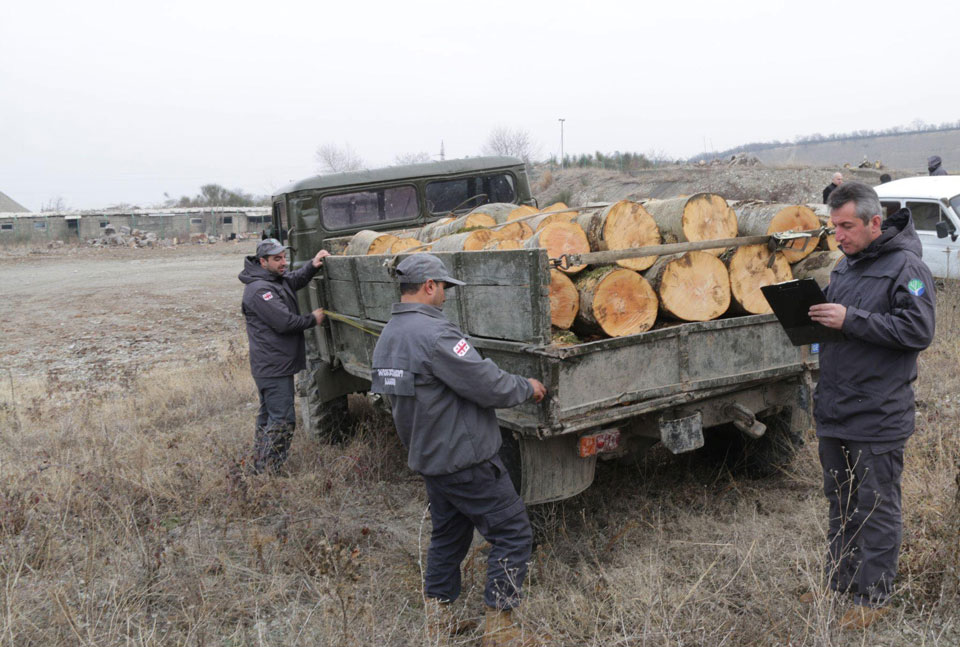Nowadays, poachers’ tactics of breaching the law evolve with time, making combating them increasingly challenging. This technique would be practically unimaginable without contemporary technology. A photo trap is a crucial instrument in the hands of environmental defenders since it identifies potential violations and alerts the relevant agency for rapid action.
The next tool to prevent poaching is an anti-poaching drone that can track, monitor, and locate poachers, helping wildlife conservationists better protect wild animals.
Even though the statistics are positive and the number of cases of illegal logging is decreasing year by year, the problem is still relevant. In 2019, the relevant services detected 38,000 cubic meters of illegally harvested timber. This year, this number has shrunk to 4,000.
The main lever for solving the problem is sanctions against lawbreakers, which have tightened following the amendments in the relevant law.
“The tree should not be cut. Our principal purpose is to ensure that natural resources are not taken unlawfully. As a result, all of our actions and efforts are focused on this preventative approach,” says Maia Chchobadze, Head of the Biodiversity Control Service of the Department of Environmental Supervision.
Experts believe that inter-departmental work is necessary for the population to limit the amount of so-called social cutting. They stress the need promoting alternate heating options.
“Hundreds of thousands of people rely on these forests for heating and livelihood, so we must exercise extreme caution to ensure the reform’s success,” says Rezo Getiashvili, CENN Deputy Director.
Illegal fishing using various poaching tactics is also a significant threat for biodiversity. For years, the nation attempted to combat detrimental activities only through sanctions.
Electric fishing has been categorised as a criminal offence, which experts believe is crucial for preventative efforts. It should be emphasised that sanctions will likely be tightened shortly.
Changes to hunting laws are also in the works, which will most certainly change both hunting deadlines and the list of animals and birds that may be lawfully hunted now.
GIZ and the Georgian government have been actively executing ECO Georgia, a Green Climate Fund (GCF) initiative to allow the implementation of forest sector reform. The project seeks to mitigate greenhouse gases through improved, nature-based management of the country’s forests and improvement of energy efficiency to reduce the demand for fuelwood.
The project seeks to create a unified timber production and distribution system by establishing “business yards” nationwide. The National Forestry Agency of Georgia has established 40 “business yards” as of today, with an additional 17 planned by the end of 2024.
